Narcolepsy Study
Comparison Table
Click the green button above to search for a study near you.
 |
Recently Added | Recently Added | Recently Added | Recently Added | Recently Added | |||||||||||
|---|---|---|---|---|---|---|---|---|---|---|---|---|---|---|---|---|
Click the study name or NCT# to find out more info about each study. |
A Randomized, Double-Blinded, Placebo-Controlled, Dose-Finding, Adaptive Trial to Evaluate the Safety, Tolerability, and Efficacy of TAK-360 in Participants With Narcolepsy Without Cataplexy (NT2) The main aim of this study is to learn how safe TAK-360 is and how well adults with NT2 tolerate it. Researchers also want to find out if TAK-360 can help people with NT2 stay awake and determine the right dosage needed to do that. | Narcolepsy is a sleep disorder in which patients are not able to maintain wakefulness or require treatment to maintain wakefulness during the daytime. Narcolepsy is a lifelong neurologic disease for which no cure has been clinically available. JZP441 is currently being developed for the treatment of narcolepsy type 1 (NT1). This study will assess the safety of efficacy of JZP441 in adult patients with NT1. This Phase 1b, randomized, double-blind, sponsor-unblinded, placebo-controlled 4-way crossover study will evaluate the efficacy, safety, tolerability, and pharmacokinetics (PK) of a range of JZP441 doses in participants with NT1. Changes in daytime sleepiness will be assessed via objective (MWT) and subjective (KSS, VAS for sleepiness) efficacy measures. | A Phase 2, Randomized, Parallel-Group, Double-Blind, Dose-Range-Finding Study to Evaluate the Safety and Efficacy of ALKS 2680 in Subjects with Idiopathic Hypersomnia (Vibrance-3) The purpose of this study is to measure the safety and decrease in daytime sleepiness in subjects with Idiopathic Hypersomnia when taking ALKS 2680 tablets compared with placebo tablets | A Dose-Finding, Adaptive, Randomized, Double-Blinded, Placebo-Controlled Trial to Evaluate the Safety, Tolerability, and Efficacy of TAK-360 in Participants With Idiopathic Hypersomnia (IH) The main aim of this study is to learn how safe TAK-360 is and how well adults with IH tolerate it. Researchers also want to find out if TAK-360 can help people with IH stay awake and how much TAK-360 is needed to do that. Contact Takeda at medinfoUS@takeda.com or by phone at +1-877-825-3327 for more information. | A Phase 2a, Randomized, Double-blind, Placebo-controlled Study of the Safety, Tolerability, Pharmacokinetics, and Pharmacodynamics of ORX750 in Subjects with Narcolepsy and Idiopathic Hypersomnia (CRYSTAL-1). For more information email CRYSTAL-1@centessa.com | An Open-Label, Long-Term Extension Study to Investigate the Safety, Tolerability, and Durability of Treatment Effect of ALKS 2680 in Subjects With Narcolepsy Type 1 and Type 2. US Only: For more information call Director, Global Clinical Services 888-235-8008 or email: clinicaltrials@alkermes.com Global: For more information call Director, Global Clinical Services 571-599-2702 or email: 571-599-2702 | This phase II clinical trial is a monocenter double-blind randomized placebo-controlled study to evaluate the efficacy and safety of solriamfetol from 75 to 300mg per day in idiopathic hypersomnia patients. Patients will be randomized to receive either solriamfetol or placebo with titration every morning upon awakening during all study treatment periods (day 0 to week 7). For more information call Dr. Yves Dauvilliers +33467335219 or email: y-dauvilliers@chu-montpellier.fr | The purpose of this study is to measure the safety and decrease in sleepiness in subjects with narcolepsy type 2 (NT2) when taking ALKS 2680 tablets compared to placebo tablets. It includes both double-blind treatment and open-label treatment periods. Study sites are still being selected. For more information email Alkermes at clinicaltrials@alkermes.com or call 888-235-8008. | This is a double-blind, placebo-controlled, randomized withdrawal, multicenter study of the efficacy and safety of FT218 with an open-label safety extension period. FT218 drug product is a once-nightly formulation of sodium oxybate for extended-release oral suspension. The study will enroll subjects who are diagnosed with idiopathic hypersomnia. Subjects will be eligible to enroll regardless of current treatment with oxybate therapy or stimulants/alerting agents at study entry. The estimated total duration of study for each subject is approximately 42 weeks, including the open-label safety extension period. For more information contact Avadel 636-449-1830 or email grichards@avadel.com. | The aim of this study is to learn how effective TAK-861 is in improving excessive daytime sleepiness after 3 months of treatment. Other aims are to learn how effective TAK-861 is in lowering the number of cataplexy events in a week; to learn the effect TAK-861 has on participants' ability to maintain attention, overall quality of life, the spectrum of narcolepsy symptoms and daily life functions. and to learn more about the safety of TAK-861. For more information about this study, please call 1-877-825-3327 or email medinfoUS@takeda.com. | The main aim of this study is to learn how effective TAK-861 is in improving excessive sleepiness during the day (called excessive daytime sleepiness or EDS) after 3 months of treatment. Other aims are to learn how effective TAK-861 is in lowering the number of sudden, unexpected attacks of muscle weakness while staying conscious (cataplexy) in a week; to learn the effect TAK-861 has on participants' ability to maintain attention, participant's overall quality of life, the spectrum of narcolepsy symptoms, and daily life functions; and to learn about the safety of TAK-861. For more information call 877-825-3327 or email medinfoUS@takeda.com | The purpose of this research study is to assess the safety and efficacy of ALKS-2680 compared to placebo, including whether participants taking ALKS-2680 experience greater decrease in sleepiness and a decrease in cataplexy (sudden loss of muscle control) compared to participants taking placebo alone. Contact Alkermes Global Clinical Services by phone at 1-888-235-8008 or email clinicaltrial@alkermes.com to find out more about this study. | Low sodium oxybate has been approved by the US Food and Drug Association (FDA) for the treatment of idiopathic hypersomnia. In this study, the researchers want to learn how low sodium oxybate impacts the ability of people diagnosed with idiopathic hypersomnia to sleep for long periods of time. In addition, this study will use novel tools to determine when an individual is asleep or awake. Contact Clinical Trial Disclosure & Transparency at ClinicalTrialDisclosure@JazzPharma.com or by phone at 215-832-3750 for more information. OR click study number below to see individual sites and contact information. | About this study: A Eight-Week Study of NLS-2 (Mazindol Extended Release) in Participants With Narcolepsy Type 1 (AMAZE). The goal of this clinical trial is to see how NLS-2 (mazindol extended-release) works on symptoms of narcolepsy, including cataplexy and excessive daytime sleepiness. Approximately 48 participants will take part in the study across the United States. The study treatment (NLS-2 or placebo) will be administered for 8 weeks. After this treatment period, the participant may have the option to participate in a separate long-term extension study during which all participants will be treated with NLS-2. Contact Jeff Bernier at amaze@nls-pharma.com or by phone at 617-905-2282 for more information. | The drug being tested in this study is called TAK-861. TAK-861 is being tested to treat people who have narcolepsy type 1 (NT1). This study will look at the safety of TAK-861 along with improvement in narcolepsy symptoms, including excessive daytime sleepiness (EDS) and number of cataplexy episodes. This study was initiated in parallel with the parent phase 2 studies, TAK-861-2001 (NCT05687903) and TAK-861-2002 (NCT05687916), which included participants with NT1 and narcolepsy type 2 (NT2), respectively. This long-term extension (LTE) study enrolled participants with both diagnoses from the two phase 2 studies. As the TAK-861-2002 study did not meet prespecified criteria, all participants with NT2 have been discontinued, and this extension study will only include participants with NT1 who previously completed a parent study. Additional parent studies include all TAK-861 phase 3 studies. The study will enroll up to 500 patients. Participants will be assigned to one of the treatment groups according to the dose assigned to them in their parent study. Similarly, participants who were previously on a placebo dose will also be assigned to one of the treatment groups randomly. All participants in the study will receive TAK-861. Participants with NT1 will receive the following dose from the parent study: TAK-861 Dose 1 TAK-861 Dose 2 This multi-center trial will be conducted worldwide. The overall time to participate in this study is up to approximately 5 years. Participants will make multiple visits to the clinic (with some visits optionally conducted by home health) and will have a follow-up assessment 4 weeks after the last dose of study drug. This is an open label extension that aims to evaluate the safety and tolerability of TAK-861 on participants with type 1 and type 2 narcolepsy from previous parent studies, TAK-861-2001 (NCT05687903) and TAK-861-2002 (NCT05687916). For more information contact 877-825-3327 or email medinfoUS@takeda.com. | |
| NCT # | NCT06952699 | NCT06961266 | NCT06843590 | NCT06812078 | NCT06752668 | NCT06767683 | NCT06590662 | NCT06555783 | NCT06525077 | NCT06505031 | First Light Study NCT06470828 | NCT06358950 | NCT05837091 | NCT05914194 | NCT05816382 | |
 | What is the main factor the study is measuring? | Safety, Tolerability, EDS | Excessive Daytime Sleepiness | Excessive Daytime Sleepiness | Tolerance, Dose Finding, Excessive Daytime Sleepiness | Adverse Events, Changes in Laboratory Tests, Vital Signs, ECG | Adverse Events | Excessive Daytime Sleepiness | Excessive Daytime Sleepiness | Excessive Daytime Sleepiness | Excessive Daytime Sleepiness | Excessive Daytime Sleepiness | Excessive Daytime Sleepiness | Total Sleep Time | # Cataplexy Events | Adverse Events. Excessive Daytime Sleepiness |
 | Diagnosis | NT2 | NT1 | IH | IH | NT1, NT2, IH | NT1, NT2 | IH | NT2 | IH | NT1 | NT1 | NT1 | IH | NT1 | NT1, NT2 |
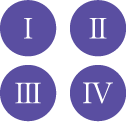 | Study Phase | Phase II | Phase I | Phase II | Phase II | Phase II | Phase II, III | Phase II | Phase II | Phase III | Phase III | Phase III | Phase II | Phase IV | Phase III | Phase II and III |
 | Important criteria to be able to participate | Diagnosis of NT2, BMI between 16-38, Minimum weight 40kg | Diagnosis of NT1, BMI 18-35, Minimum body weight 50k for men and 45kg for women | Diagnosed IH within the previous 10 years | Diagnosed IH, BMI 16-38 with minimum weight 40kg | Diagnosis of NT1, NT2, or IH, BMI 17-37 | Completed ALKS 2680-201 (Vibrance-1) or ALKS 2680-202 (Vibrance-2) | BMI 18 to 30, Epworth Sleepiness Scale >11 | Diagnosis of NT2, BMI 18-35 | Diagnosis of Idiopathic Hypersomnia, TST 7+ hours | Diagnosis of NT1, HLA positive, BMI 18-40 | Diagnosis of NT1, HLA positive, BMI 18-40 | BMI 18-35, HLA positive | Total Sleep Time (9 or more hours) | 4+ cataplexy events per wk, BMI 18-40 | Completed previous TAK-861 study |
 | Mechanism | Orexin | Orexin | Orexin | Orexin | Orexin | Orexin | Dopamine-Norepinephrine Reuptake Inhibition | Orexin | GABA / GHB | Orexin | Orexin | Orexin | GABA / GHB | orexin, dopamine, norepinephrine | Orexin |
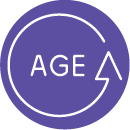 | Age Range | 18 to 70 | 18 to 64 | 18 to 70 | 18 to 70 | 18 to 65 | 18 to 70 | 18 to 60 | 18 to 70 | 18 to 75 | 16 to 70 | 16 to 70 | 18 to 70 | 18 to 65 | 18+ | US: 18-70; Japan: 16-70 |
 | Daytime Testing Required | UNK | UNK | UNK | UNK | |||||||||||
 | Overnight Stays Required | N/A | N/A | N/A | N/A | N/A | ||||||||||
| Max Study Duration | 15 weeks | 11 weeks | 8 wks | 8 wks | 49 days | 100 weeks | 7 weeks | 21 weeks | 42 weeks | 12 weeks | 12 weeks | 15 weeks | 3 months | 8 wks | 108 weeks | |
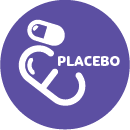 | Is there a possibility of receiving placebo? | |||||||||||||||
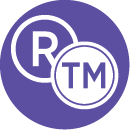 | Trade Name | Not Published | Not Published | Not Published | Not Published | Not Published | Not Published | Sunosi | Not Published | Lumryz | Not Published | Not Published | Not Published | Xywav | Sanorex/Quilience | Not Published |
 | Drug Formulation | Tablet | Oral | Tablet | Tablet | Capsule | Tablet | Tablet | Tablet | Tablet | Tablet | Tablet | Tablet | Liquid | Tablet | Tablet |
 | Will I be compensated financially for my participation? | |||||||||||||||
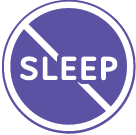 | Can I have other sleep disorders during the trial? | N/A | ||||||||||||||
 | Where is the trial being conducting (Region / # of sites) | US, Europe, Asia (30) | US (3) | Not Available | Not Available | US (1) | US (5) | EU (1) | Not Available | US (6) | Not Available | US, Canada, Europe, Japan (53) | US (5) | US (4) | US (25 planned) | US (25) EU (32) Asia (11) |
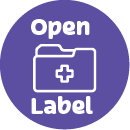 | Is this an open label study? | |||||||||||||||

